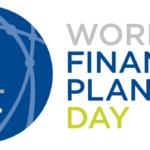Author Katrina Shanks, CEO Financial Advice NZ. Article originally published in riskinfonz.co.nz.
OPINION: How does financial literacy evolve from a young age to middle age? It’s an interesting question, and one that an ongoing study by Massey University’s NZ Fin-Ed Centre is trying to answer. They have been tracking the same cohort of 300 young Kiwis (then aged 18-22) since 2012, and will continue to track their personal financial journey until 2032.
As part of our “Bring in the Experts” webinar series, we recently had the privilege of hosting Dr. Pushpa Wood and Associate Professor Claire Matthews to discuss their findings, and how we can improve financial resilience in New Zealand.
It’s been another insightful session, with plenty of questions from viewers. But if you missed it, you can still find it in the Members site. In the meantime, here are some takeaways I’d like to highlight.
What the study has found so far
Researchers aim to measure various parameters over time (e.g., financial knowledge, confidence, behaviour, future outlook, and main sources of information), and understand how these evolve as the individual grows older.
While the study doesn’t provide a picture of the current financial literacy of 18-to-22-year-old, it does offer precious insights into how people learn and approach their finances through the earlier lifestages.
Here are some key findings in a snapshot:
- Financial literacy improves over time, but the gender gap persists: It’s not surprising that participants’ financial literacy has improved in the past ten years. But while both genders showed an improvement, women continue to lag in financial literacy levels, which is a global issue. Also interestingly, females tended to underestimate their financial literacy gains whereas males overestimated theirs.
- Proactive learning, and some mistakes along the way: According to the study, there’s a willingness to seek information and set financial goals. However, many admitted to having learned mostly through making mistakes. This is something we need to fix, as financial mistakes often come at a high cost.
- A dislike of debt: In other positive news, most people in the group dislike debt, with a low level of credit card use and a preference for mortgage debt, seen as ‘good debt’.
- Financial products and planning: Some interesting insights here too. For instance, participation in KiwiSaver rose from 62% to 92%, student loans saw a reduction from 70% to 47%, and 55% of participants now own a house with a mortgage. As for insurance, only 5% of participants didn’t have any type of cover. 40% had some form of life insurance, whereas 25% had some income protection. There’s still a long way to go, but it’s a promising result.
- Confidence and satisfaction: Encouragingly, participants indicated high confidence in their money management skills, despite also being more aware of the gaps in their financial knowledge. This may sound counterintuitive, but according to researchers, the higher confidence could be explained by the fact that they have started out in the financial life. By working, learning, setting goals, and putting plans in place, they can now feel more in control of their money.
Overall, some positive findings, but also gaps that need to be bridged if we want New Zealanders, and New Zealand as a country, to thrive. This brings me to the overarching question.
How do we improve Kiwis’ financial literacy, resilience, and future?
It’s clear that people are willing to learn and set goals, but often find themselves learning through financial mistakes which may lead to long-lasting setbacks.
What if instead, as a society, we equipped individuals with the financial knowledge they needed before they made these mistakes?
Financial education – as Dr. Wood pointed out – is a lifelong learning experience. It evolves as our lives evolve. That’s why, rather than being compartmentalised into a one-time seminar or course, it should be a continuum through an individual’s life.
As I see it, it’s our collective responsibility to ensure that people’s financial journey is as informed as possible. In many ways, it doesn’t seem enough to provide young people with basic money-management skills in school, and then expect them to navigate more complex financial landscapes on their own as they age. From school curricula to workplace seminars and community programmes, financial literacy needs to be integrated across the board. And that means investing in it as a society.
Where does financial advice fit in?
The study indicated mixed utilisation of financial advisers. Parents first, and their own experience second, are the main sources of financial knowledge. And while some participants have been seeking professional financial advice, many don’t seem to have a good understanding of what financial advice can do for them.
There are essentially two key barriers: trust and perceived cost. Plus, there’s a persistent misconception that only wealthy people need financial planning. We know that’s not the case, but how can we help those who are not seeking advice yet understand its value?
I personally believe that financial advice is transformational; I’ve experienced the benefits first-hand in my own financial journey. And I know that the value of professional advice outweighs the initial cost. To help more and more Kiwis, young and old, grasp the intangible benefits of advice, we need to reframe the ‘cost’ component as an investment in long-term financial well-being.
There’s also another aspect to the cost barrier that Dr. Wood pointed out. Due to the cost barrier, those who are neither wealthy nor in financial hardship (who can access free budgeting advice) often fall through the cracks. This vast middle ground might benefit enormously from partly subsidised advice, maybe through a tiered advice system.
It’s something policymakers could explore. For the time being, I’m looking forward to continuing this conversation as we work, as a sector, to make financial advice more and more accessible.
We are in your corner
At Financial Advice NZ, we believe in the transformative power of quality advice. Would you like to learn more about our initiatives? Don’t hesitate to get in touch.
– ENDS –





